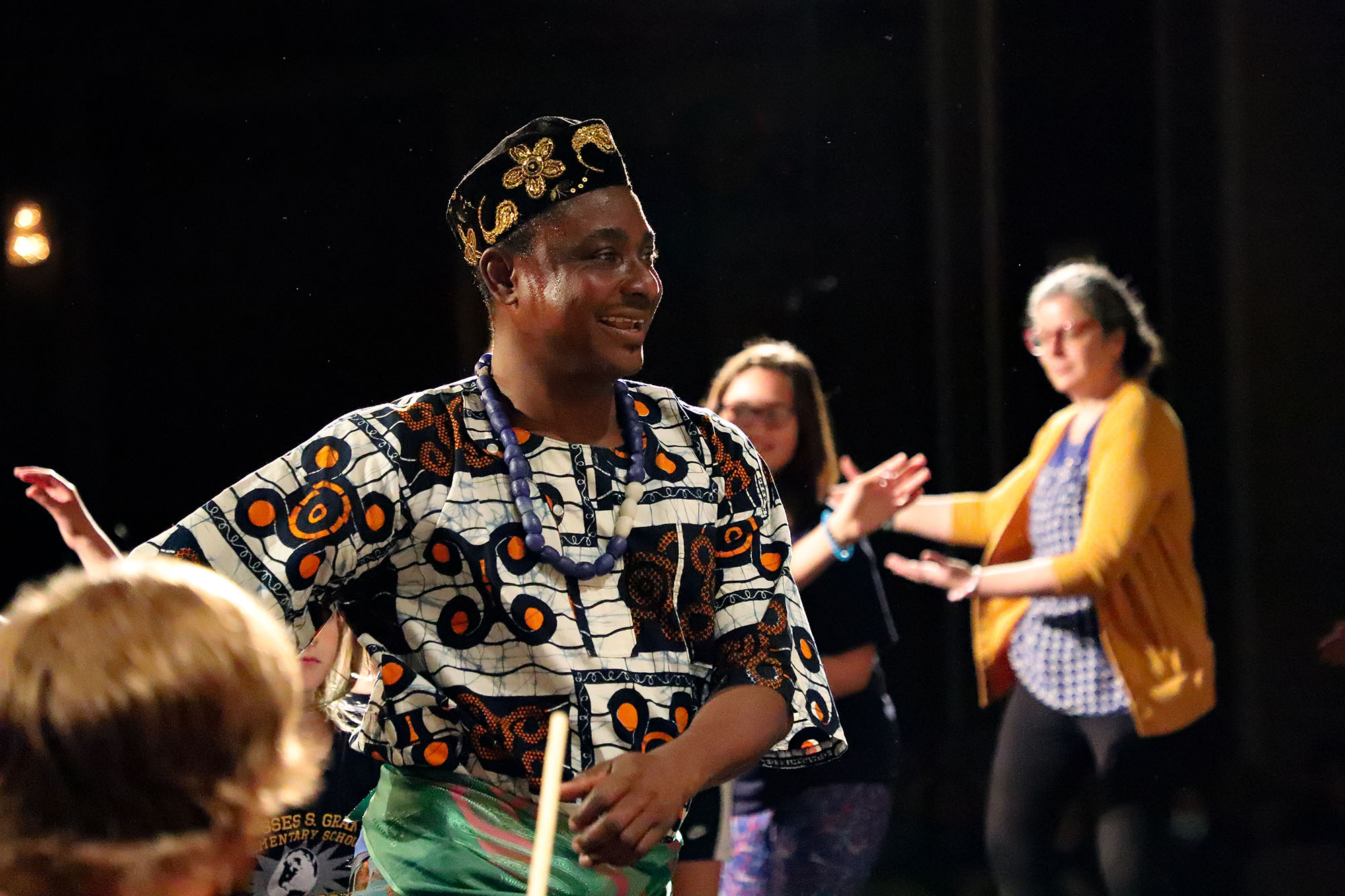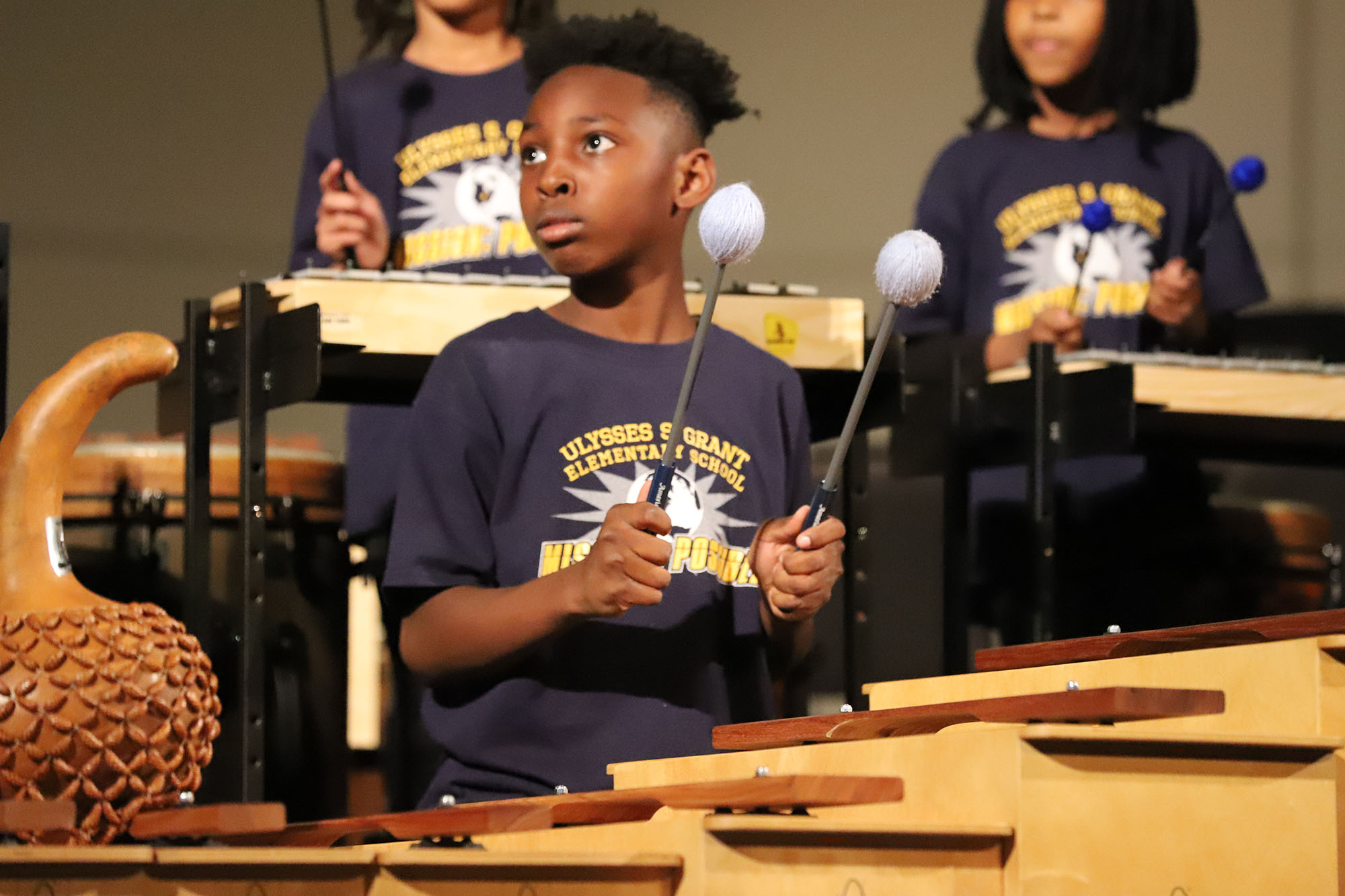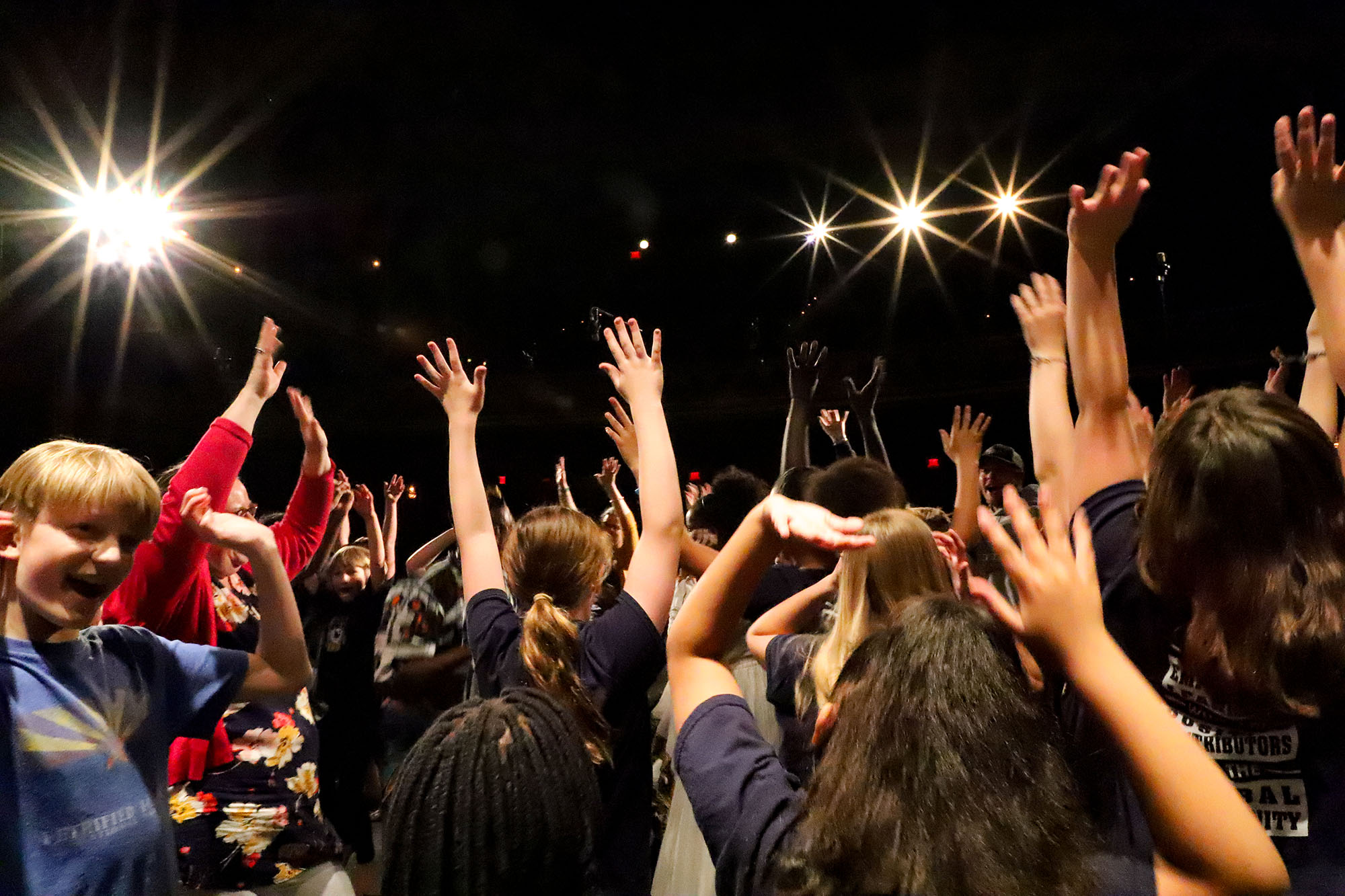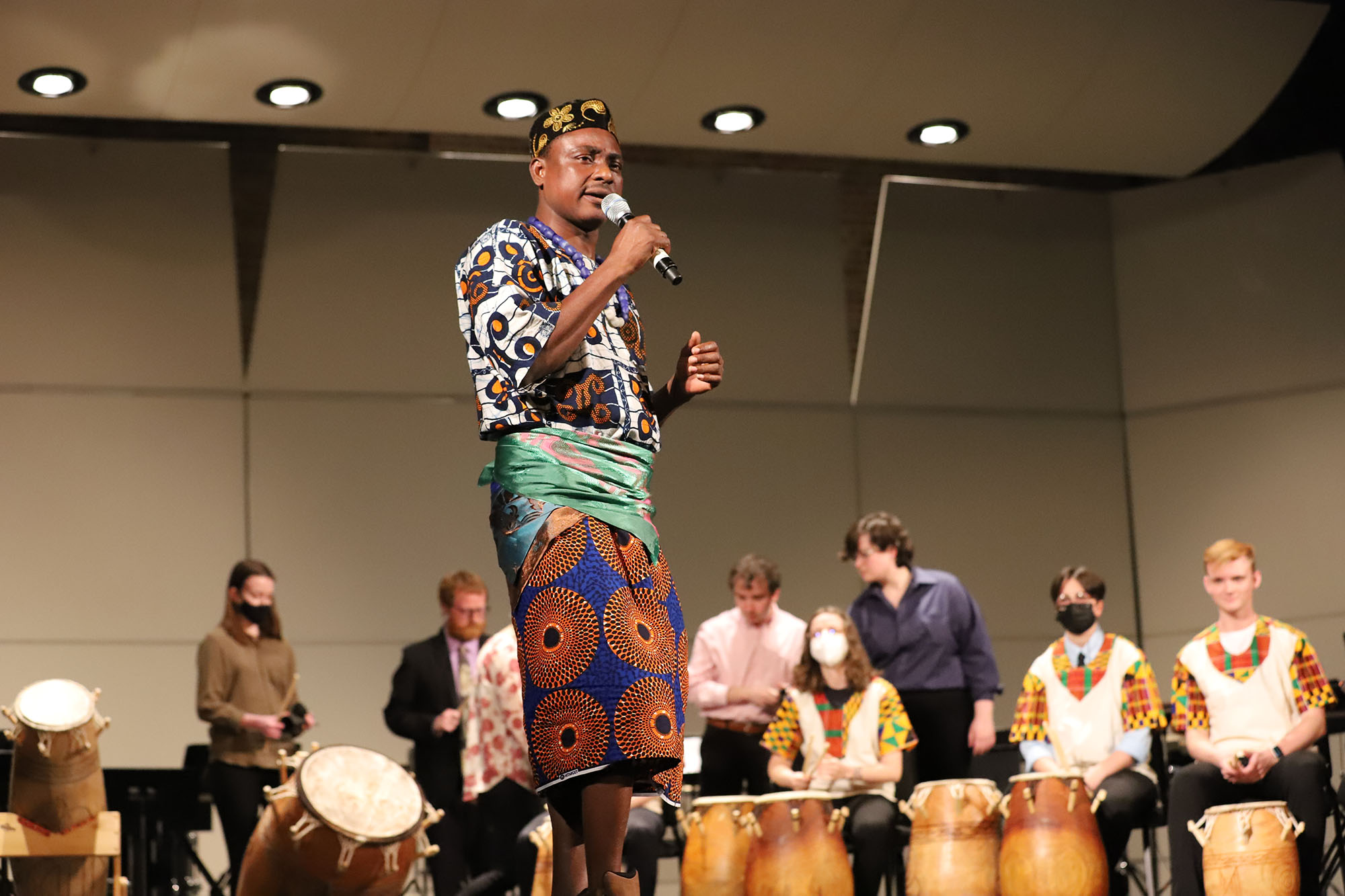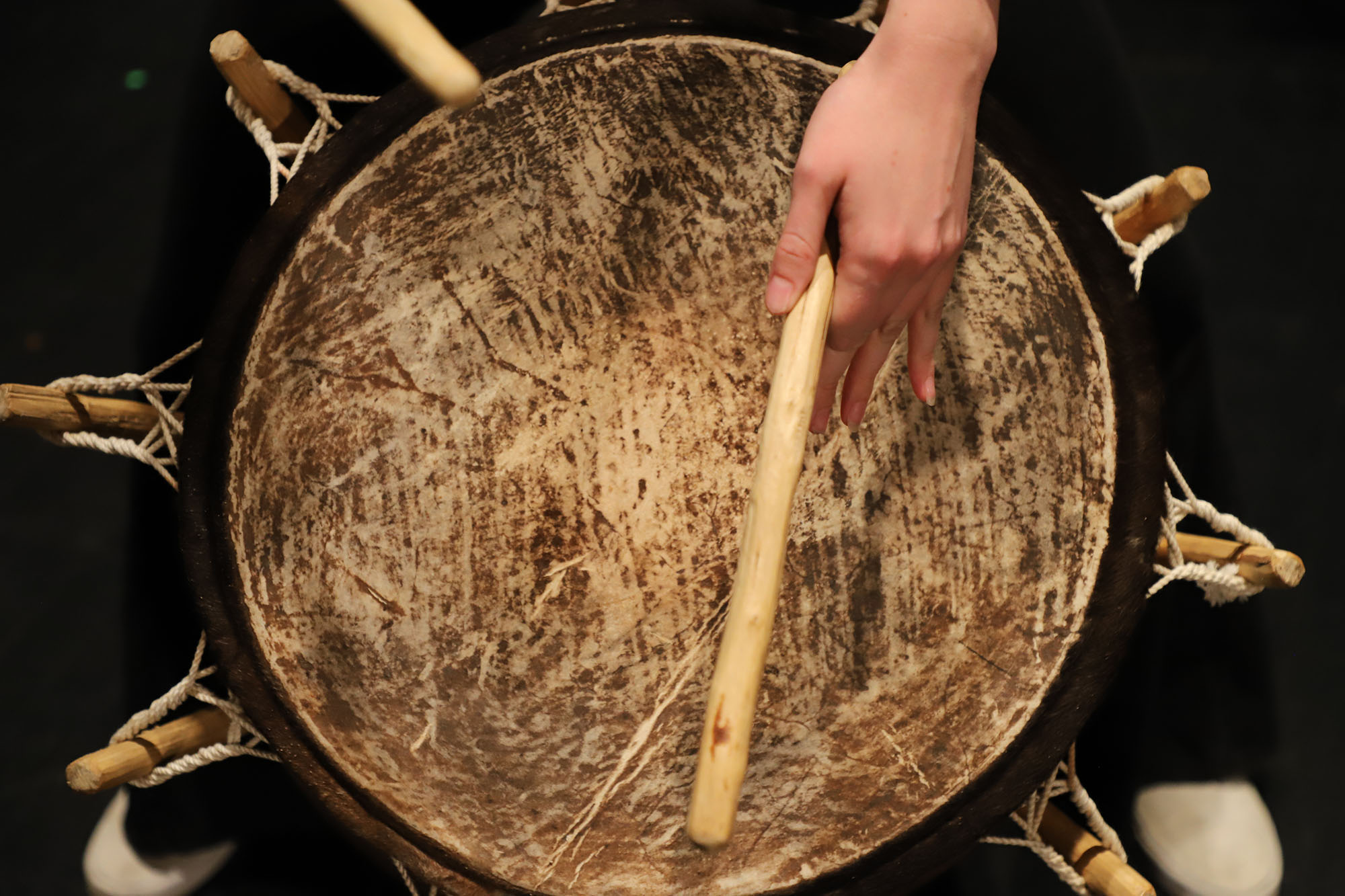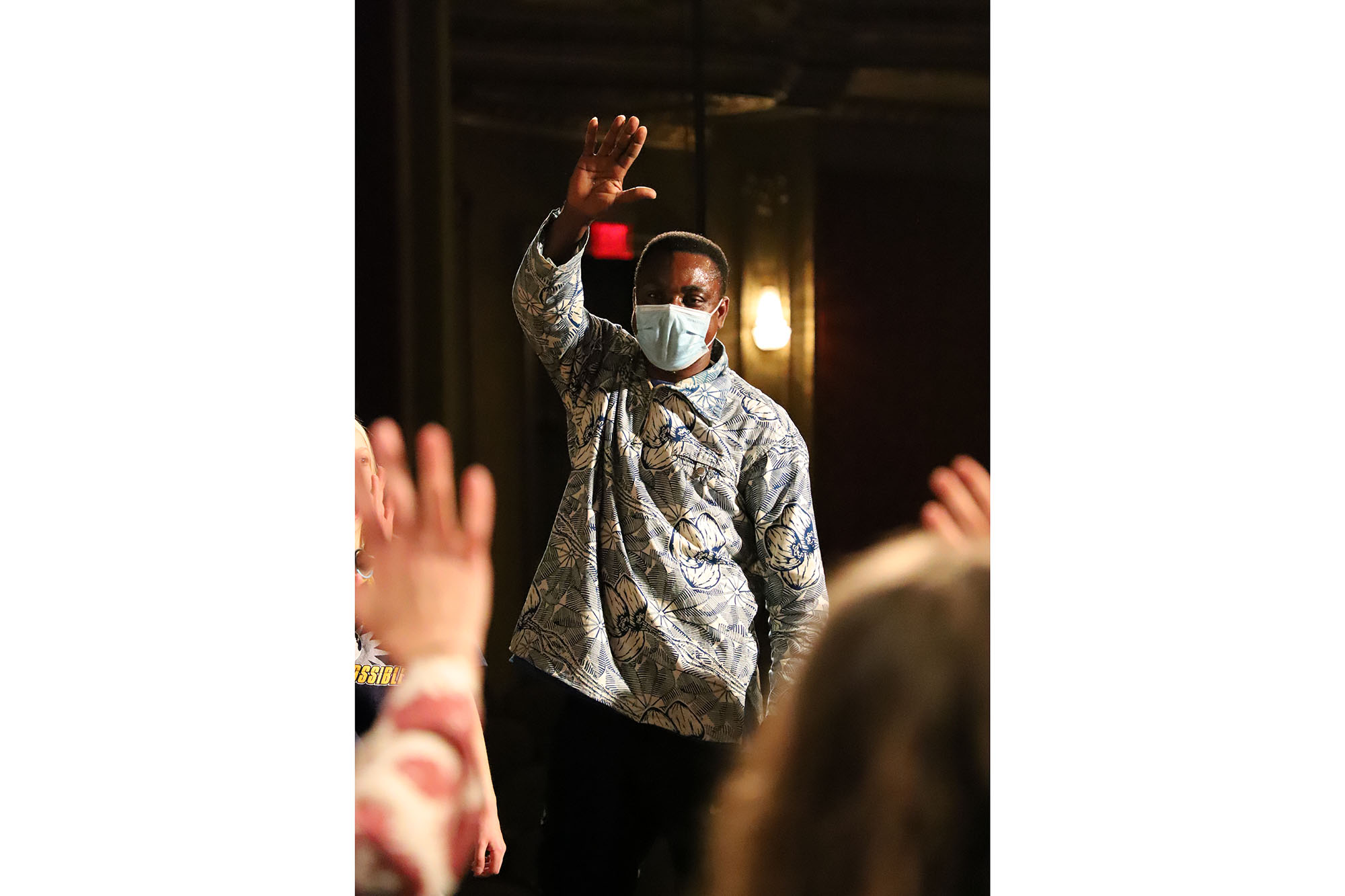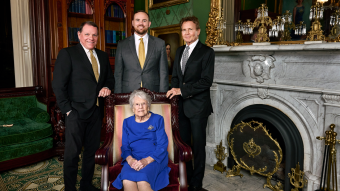April 18, 2022
Contact: Marcus Wilkins, wilkinsm@missouri.edu
If Emmanuel Agbeli has a single message to share with his audiences, it is one of unity.
“Music brings us together,” said Agbeli. “It gives us energy and strength to work, lifts our hearts and connects our people. Even when we’re not working, we are playing music because it unites us as a family.”
Agbeli, master drummer and director of the Dagbe Cultural Institute in Kopeyia, Ghana, spread that message over a weeklong stay at the University of Missouri last week. His visit included a performance at the Missouri Theatre, a community drum and dance workshop at the School of Music and a full-school assembly at Grant Elementary School in Columbia, among other stops.
MU host Megan Arns said the tribal tradition of incorporating storytelling, multiple percussion instruments and dance are captivating.
“I visited Dagbe and met Emmanuel when I was a student in 2007, and I fell in love with the music, people and culture,” said Arns, director of percussion studies at the School of Music. “The music is ubiquitous, participatory and community centered. Everyone is involved in the performance, not just the performers.
“To be able to invite him to Mizzou to perform and work with classes in the School of Music — general music, music education, the percussion department — is a dream come true.”
Emily Miclon, a percussion performance graduate student from Enfield, Connecticut, believes connecting with international musicians has broadened her horizons.
“Emmanuel shares the meaning behind each song he teaches us, and he has encouraged us to embody the story behind each song in our playing,” Miclon said. “I’ve learned so much about the importance and meaning of drumming in traditions around the world from Emmanuel and other guests throughout my time at Mizzou. I am grateful for these expanded perspectives.”
African drumbeat
Back home in Ghana, the Kopeyia villagers’ constant music rings through the cassava and corn fields, but it is also a nightly form of after-dinner entertainment. Gathered around a fire, parents and grandparents spin life lessons for the children that often feature animals or insects as protagonists. The stories teach about responsibility, obedience, hard work, and include interludes for song and dance.
“Even if you don’t know how to dance, it is an opportunity to learn how to dance,” Agbeli said. “It is an opportunity to draw someone closer to you.”
The Dagbe Cultural Institute, Agbeli’s academic home, was founded in 1992 and is a destination for students interested in West African drumming and dance. Some common drums include the boba, typically the leading instrument of the ensemble; the sogo, a “response” drum to the boba; and the kagan, a higher-pitched timekeeping drum.
Agbeli’s “master drummer” title is one of great respect bestowed by the community and refers to his innate ability to listen to and guide the other percussionists.
“When the community honors you with the title, it means they notice your skill and often ask you to play the lead drums,” Agbeli said. “But it also means a lot because if you have time for music, in our culture, it means you have time for people.
“And being invited to share my culture at the University of Missouri is an honor.”
